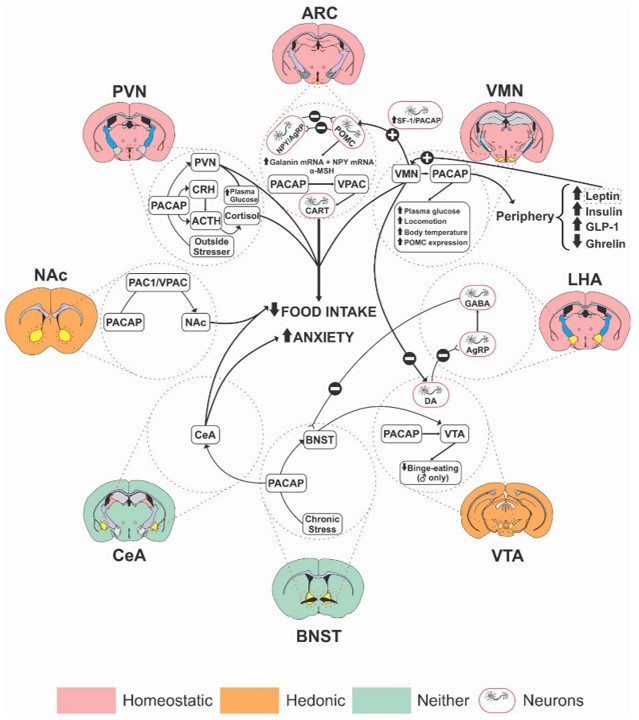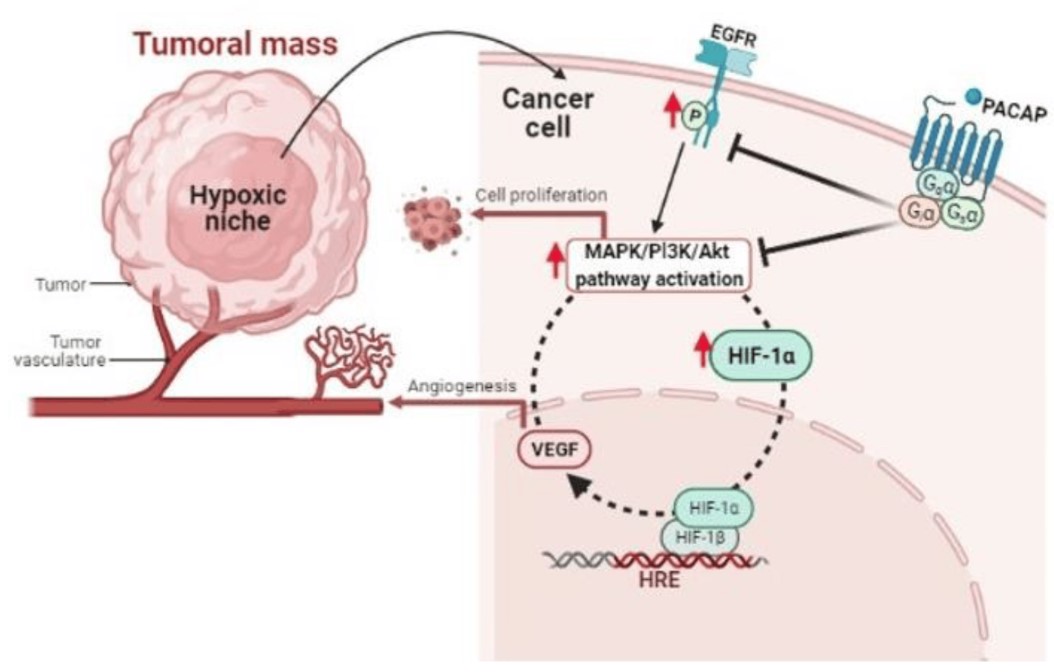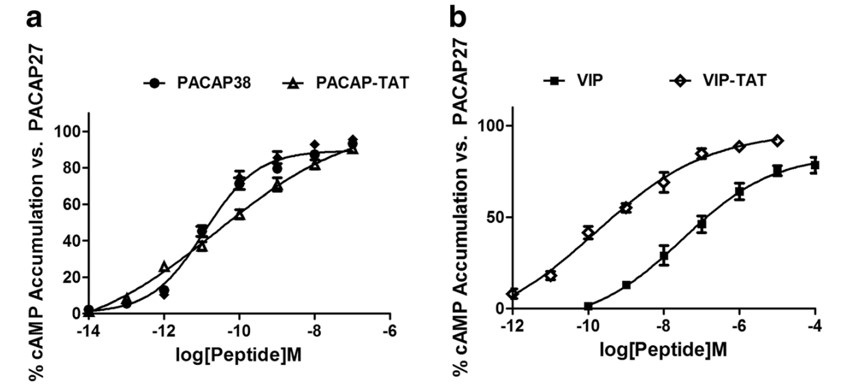Hi-Affi™ In Vitro Cell based PACAP Receptor Functional Assay Service
PACAP Receptor Overview
Pituitary adenylate-cyclase-activating polypeptide receptor (PACAP receptor), a subtype of GPCR, meditates PACAP signal transmission. At the periphery, they regulate hormone release from the anterior pituitary gland, immunosuppression, and other processes. In the central nervous system, PACAP receptors not only meditate the transmission of neurotransmitters but also protect neurons. This receptor is implicated in several biological processes. In general, the function diversity of PACAP receptors sheds light on disease therapy. Accordingly, an understanding of their function mechanism may boost the development of new therapeutic drugs.
 Fig.1 The action of PACAP receptors in the regulation of food intake.1
Fig.1 The action of PACAP receptors in the regulation of food intake.1
Our Hi-Affi™ In Vitro Cell-based PACAP Receptor Functional Assay Service
In response to demands from global customers, Creative Biolabs has developed a speedy and dependable Hi-Affi™ in vitro cell-based PACAP receptor functional assay service by ingeniously combining the cell-based assay with the PACAP receptors functional assay. Our Hi-Affi™ in vitro cell-based PARP receptor functional assay service analyzes the accumulation of second messengers as a readout for how well candidate samples respond to treatment of samples. Therefore, we can assess the viability of candidate samples and investigate the PACAP receptors' signaling pathway. To ensure global customers' projects run smoothly, we incorporate expert teams and our comprehensive top-ranking customized services. We warmly invite global customers to consult for more information and place orders.
 Fig.2 PACAP and its receptor in the cellular microenvironment of hypoxic niches.2
Fig.2 PACAP and its receptor in the cellular microenvironment of hypoxic niches.2
Our Features
Creative Biolabs' Hi-Affi™ in vitro cell-based PACAP receptor functional assay service surpasses the constraints of conventional PACAP receptor functional assays and offers significant benefits to our global customers. At Creative Biolabs, you will obtain the idealist outcomes for your projects in a short period.

Published Data
Representative data 1: These results demonstrate for the first time that PACAP and VIP derivatives (PACAP-TAT and VIP-TAT) applied topically reduce ischemic retinal degeneration through the PAC1 receptor, which demonstrated the traversing ability of the PACAP/VIP tagged with cell-penetrating peptide TAT were enhanced.
 Fig.3 cAMP accumulation induced by ligands activates PAC1-R.3
Fig.3 cAMP accumulation induced by ligands activates PAC1-R.3
Work with Creative Biolabs
As an industry pioneer, Creative Biolabs strives to maintain progress and drive continuous innovation in existing technologies, always taking into account valuable feedback from our global customer base. For more information about our receptor Hi-Affi™ in vitro cell-based PACAP receptor functional assay service, please feel free to contact us. Our experienced research team is eager to work with you.
References
-
Sureshkumar, Keerthana, et al. "The PACAP/PAC1 receptor system and feeding." Brain Sciences 12.1 (2021): 13.
Distributed under Open Access License CC BY 4.0, without modification. -
D'Amico, Agata Grazia, et al. "Multimodal role of PACAP in glioblastoma." Brain Sciences 11.8 (2021): 994.
Distributed under Open Access License CC BY 4.0, without modification. -
Atlasz, Tamas, et al. "Retinoprotective effects of TAT-bound vasoactive intestinal peptide and pituitary adenylate cyclase-activating polypeptide." Journal of Molecular Neuroscience 68 (2019): 397-407.
Distributed under Open Access License CC BY 4.0, without modification.
For Research Use Only.
